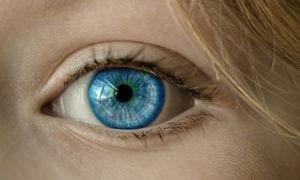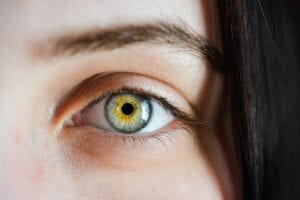Usher Syndrome
What is Usher syndrome?
Usher syndrome is a genetic disorder that is characterized by deafness and paired with retinitis pigmentosa. There are three subtypes of this disorder, distinguished by age of onset and severity of symptoms.
What are the symptoms of Usher syndrome?
Loss of hearing is the major symptom of Usher syndrome, which is accompanied by retinitis pigmentosa and its symptoms.
Type 1 of this disorder sees deafness in both ears at birth, balance problems, and vision problems around age ten.
Type 2 sees moderate to severe loss of hearing at birth that may worsen over time, and night blindness that starts in the late teens or early 20’s.
Type 3 has the latest onset hearing loss, balance issues, and retinitis pigmentosa that starts in the second to fourth decade of life.
What causes Usher syndrome?
At least ten genes have been associated with Usher syndrome, including MYO7A (USH1B), USH1C, CDH23, PCDH15 (USH1F), SANS (USH1G), USH2A, ADGRV1, WHRN, USH3A, and HARS. All of these genes are inherited in an autosomal recessive pattern.
How is Usher syndrome diagnosed?
Hearing, vision, and balance exams are all used for diagnosis. An electroretinogram may also be used, and genetic testing can confirm a diagnosis.
What are the treatments for Usher syndrome?
Treatment for Usher syndrome is symptomatic. Hearing aids or cochlear implants can improve hearing, and vision aids may be useful for the symptoms of RP.
Where can I find out more about Usher syndrome?
Usher Syndrome Articles

Researchers are Trying to Develop Gene Therapy for Usher Syndrome type 1F

Parents Create “Save Sight Now” to Fund Usher Syndrome Research

Researcher Awarded $1.6M to Advance Gene Therapy for Usher Syndrome Type 2A



New Stem Cell Robot Will Improve Care for Inherited Retinal Diseases








